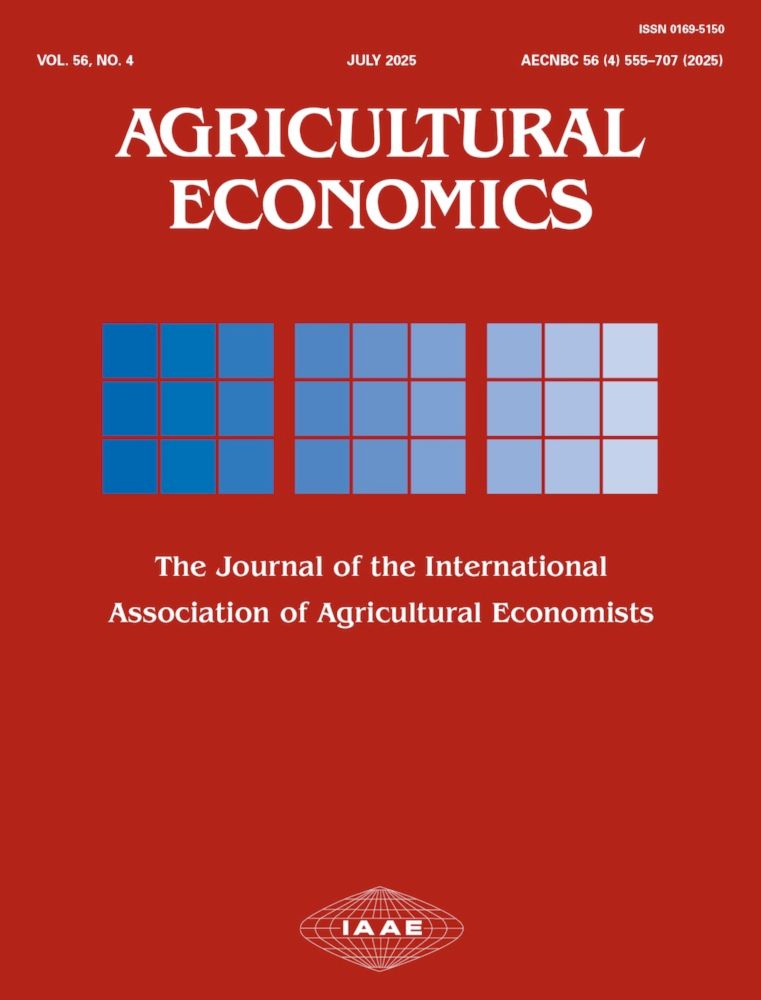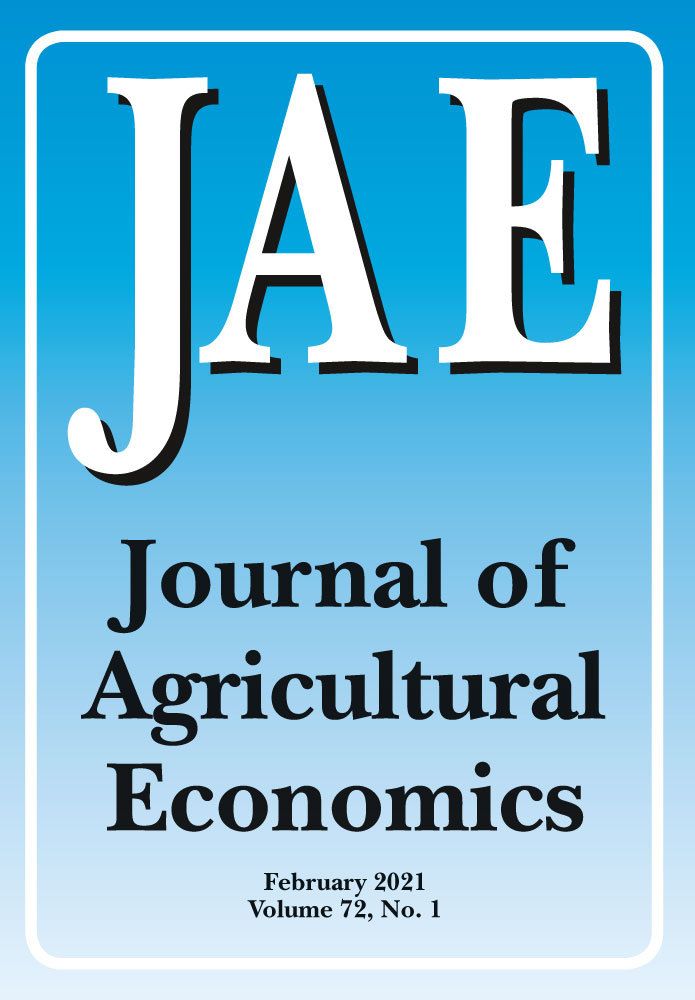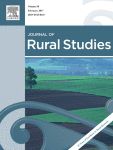
The long-term impacts of Reconstruction-era education
How did educational opportunities after the American Civil War shape economic outcomes for Black families?
Black children exposed to greater educational opportunity during Reconstruction had significantly better economic outcomes as adults, and those benefits were passed on to their children, say researchers at the University of Pittsburgh and Marquette University. #econsky www.aeaweb.org/research/rec...
27.08.2025 15:26 — 👍 299 🔁 82 💬 7 📌 5
Overall, our results reveal the limitations of market-based producer organizations to provide the same long-term support as state-backed commodity boards for smallholder producers. We suggest that these organizations need some sort of subsidies (think reinsurance) to survive in the long term.
31.07.2025 15:06 — 👍 0 🔁 0 💬 0 📌 0
When we match participant performance in the game to administrative data on member deliveries, we find that treatment effect of the additional income decreases in years of membership. New members are particularly vulnerable, and we suggest a focus on them (education and maybe subsidies).
31.07.2025 15:06 — 👍 0 🔁 0 💬 1 📌 0
Of the four elements, the additional income treatment reduces side-selling the most: it increases loyalty of the participants by 10%. Nudge reminders of services, small market shocks, and production shocks have no effect. Punchline: cooperative members deviate when they are liquidity constrained.
31.07.2025 15:06 — 👍 0 🔁 0 💬 1 📌 0
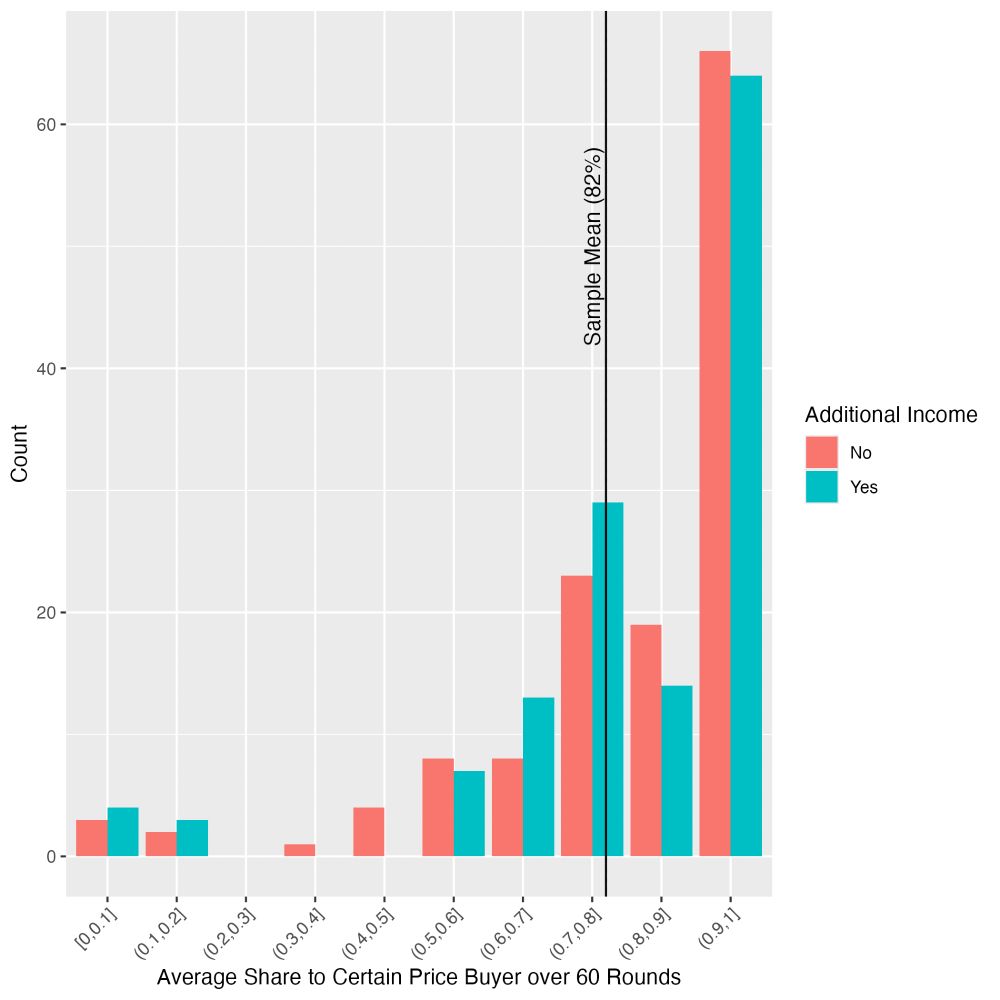
We find a strong preference for price certainty: participants allocate on average 82% of their harvest to the certain-price buyer. Moreover, 22% of the participants always allocate their entire harvest to the certain-price buyer. We randomly include nudge reminders of additional services.
31.07.2025 15:06 — 👍 0 🔁 0 💬 1 📌 0
Over 60 growing seasons, participants roll a die to find out their harvest and rough outside buyer price. They allocate their harvest between a certain-price buyer and an outside buyer. Then they find out the realized price of the outside buyer. Half receive additional income from another source.
31.07.2025 15:06 — 👍 0 🔁 0 💬 1 📌 0
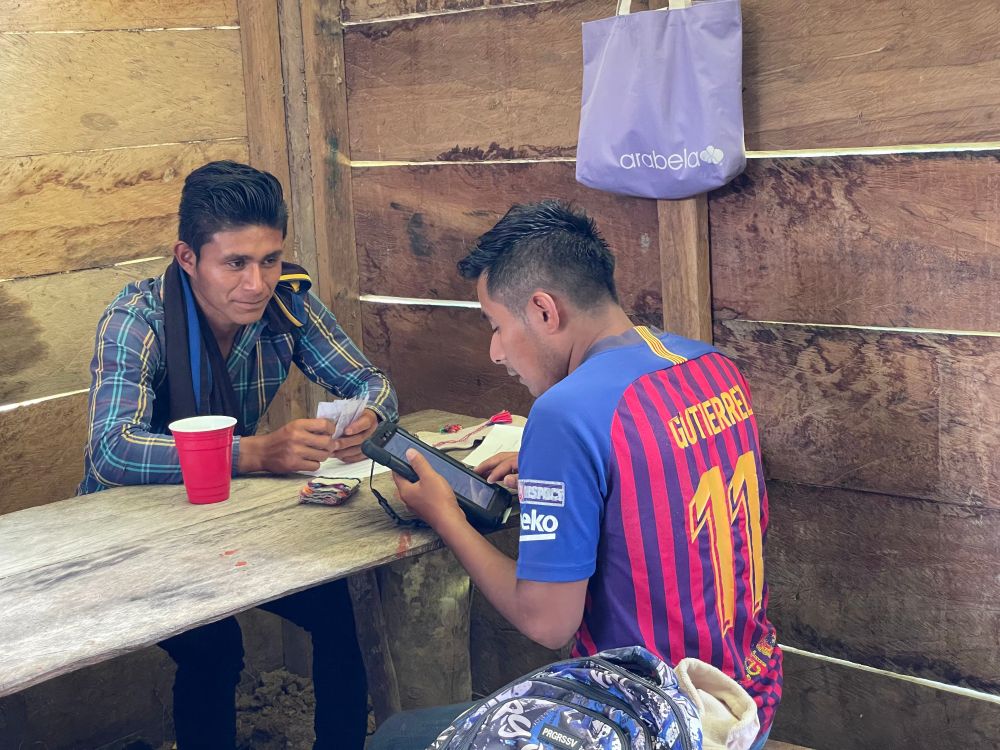
Without a stick, can we use a carrot? We design a framed field experiment to figure out which of four factors -- harvest size, outside buyer price, framing of the cooperative, or additional income -- is driving the side-selling behavior.
31.07.2025 15:06 — 👍 1 🔁 0 💬 1 📌 0
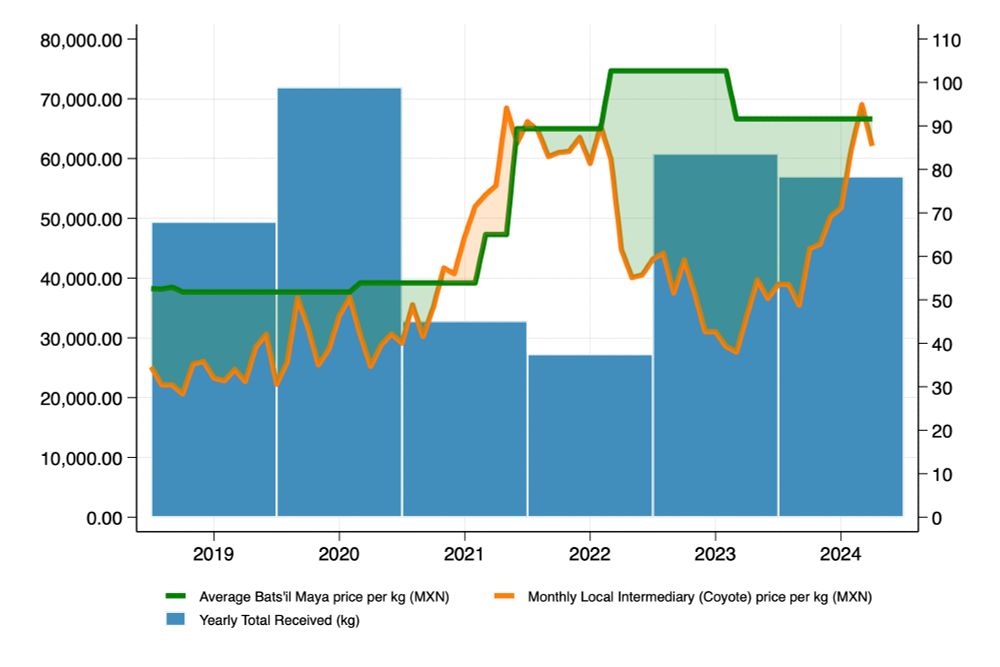
Our partner cooperative sets a stable price (green) during the growing season that usually beats the market price. During the pandemic year, the international price of coffee (orange) quickly surpassed this price. Member deliveries (bars) plummeted. The cooperative's viability was threatened.
31.07.2025 15:06 — 👍 1 🔁 0 💬 1 📌 0
These cooperatives use forward contracts up the value chain to fund member services. These contracts are based on an expected volume of member delivery. The problem comes when the producer-members don't market their production through the cooperatives. The cooperatives can't force them to.
31.07.2025 15:06 — 👍 0 🔁 0 💬 1 📌 0
Since the market-oriented reforms in 1990s, agricultural cooperatives have emerged as an alternative to state-backed commodity boards as a way to provide price insurance, microcredit, and technical assistance to smallholder producers across the developing world.
31.07.2025 15:06 — 👍 0 🔁 0 💬 1 📌 0
But my question — is it possible to get published in an economics journal these days with a matching method? I have seen them used in conjunction with diff-in-diff as an alternate to specifying control variables. It is not always feasible to do an RCT.
11.06.2025 19:25 — 👍 1 🔁 0 💬 1 📌 0
Advancing economics knowledge and the profession by giving economists a friendly place to meet and discuss one another’s work.
A nonprofit organization that synthesizes and integrates knowledge for the progress of science and the benefit of society.
https://www.annualreviews.org
Personal account only. Professor and Chair of applied econ department at Ohio State; AERE Fellow and AAEA Fellow; studies conservation, restoration, valuation. Fan of cats and nature. Former X handles: AmyEcon and AndoAW
Applied microeconomist at OSU. Development, agricultural productivity, malnutrition, measurement error. Ashtangi mom. Child of immigrant. Horrified by the genocide in Gaza.
Associate Professor and Chair of Economics
University of San Francisco
Climate, health, physics, systems bio, econometrics & music
#SF4ALL #BX4LIFE
https://sites.google.com/site/jesseanttilahughes/home
A Synthesizing Interdisciplinarian, blogging about public policy, applied economics, languages, games, and the intersections thereof.
Mostly following Starter Packs. Mostly.
The Ignatian Solidarity Network is a national social justice education and advocacy network inspired by the spirituality of St. Ignatius of Loyola.
Where research meets practice; a platform for development enthusiasts to discuss key policy issues. Powered by CEPR, IGC & PEDL.
Board: Martina Björkman-Nyqvist, Michael Callen, Cesi Cruz, David Lagakos, Joana Naritomi, Oliver Hanney & Emaan Siddique
R, data, 🐕, 🍸, 🌈. He/him.
Ph.D. economist studying the causes and consequences of racial inequality in the U.S.
Professor at UDEP, Peru. Applied microeconomics, focused on development economics and household finance (credit, insurance, pension funds). Also interested in economic history. https://sites.google.com/view/miguel-angel-carpio
You don’t need a PhD in statistics or years of coding experience to learn R, the most powerful tool for data analysis and visualization.
https://rfortherestofus.com/
Assistant professor at Georgia State University, formerly at BYU. 6 kids. Study NGOs, human rights, #PublicPolicy, #Nonprofits, #Dataviz, #CausalInference.
#rstats forever.
andrewheiss.com
Signal: andrewheiss.01
Development economist, demographer & social scientist.
Currently - Senior Evaluator @3ieImpact.org
[x-Mathematica, UW-Madison, IFPRI, FAO, AU, AmeriCorps NCCC & Tufts].
Anti-fascist + anti-racist in Chicagoland, 🇺🇸🇪🇨 & he/el.
http://www.ejquinones.com/
Postdoc at the Kiel Institute, working on trade and production networks | Econ PhD at Uni of Nottingham | Oxford graduate in Economics for Development | https://sites.google.com/view/diana-beltekian/home
Professor of Economics, Georgetown University. Co-editor at @qe_editors.
Economics Professor at Harvard University




